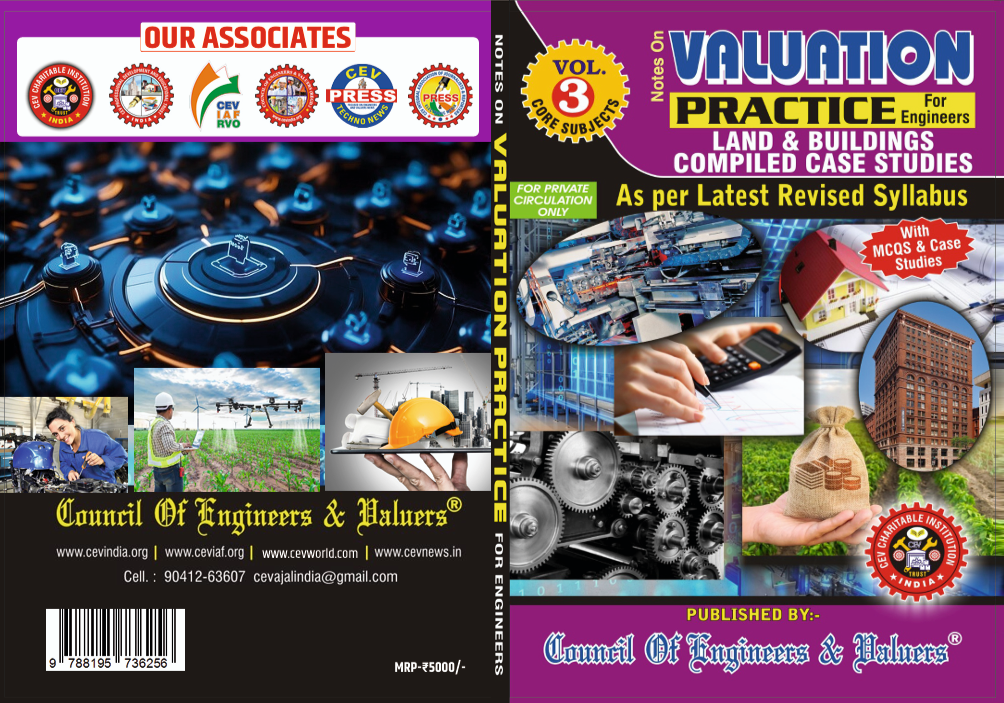DELHI HIGH COURT GRANTS RELIEF TO VALUATION PROFESSIONAL IN CBI CASE
By Er. Sundeep Bansal
Published in: CEV Techno News, Renowned Newspaper for Engineering & Valuation Practice
For Professionals in Engineering, Valuation, and Land Administration
Delhi High Court judgment in the case of B.P. Singh vs. CBI, tailored specifically for an audience of engineering, real estate, and valuation professionals and aspirants. The article contextualizes the legal nuances in the field of property valuation, due diligence, and professional accountability, drawing from Indian legal considerations.
In a significant ruling on December 9, 2024, the Delhi High Court granted suspension of sentence to B.P. Singh, a professional property valuer, pending appeal in a high-profile corruption and fraud case involving an alleged overvaluation of collateral used to secure a ₹3.10 crore loan from Corporation Bank (now Union Bank of India).
This decision, authored by Hon’ble Justice Anup Jairam Bhambhani, offers critical jurisprudential insights into the role and legal responsibility of technical professionals such as valuers, particularly those involved in banking, lending, and asset assessment. The ruling could reshape how liability is assigned in cases where professional opinions—such as valuation reports—are later questioned based on financial outcomes or contrasting assessments.
Background: The Charges Against the Valuer
The genesis of the case lies in a corporate credit facility availed by a borrower, Mr. Sudhir Kumar Arora (proprietor of M/s Supreme Steels), under the Corp Vyapar Overdraft Scheme. The collateral offered was a property located in Village Bhonja, Ghaziabad, Uttar Pradesh.
B.P. Singh, a property valuer, had assessed the market value of this collateral at ₹4.82 crore. Based on this valuation, the bank disbursed a loan of ₹3.10 crore. Subsequently, the CBI filed charges, alleging that the valuation was grossly exaggerated, constituting criminal conspiracy under:
-
Section 120-B and 420 of the Indian Penal Code (IPC)
-
Section 13(1)(d) of the Prevention of Corruption Act, 1988
B.P. Singh was convicted by a CBI trial court and sentenced to 4 years of rigorous imprisonment along with a fine. The suspension of sentence pending appeal came into effect with the High Court’s latest order.
Key Legal Arguments & High Court Observations
✅ Complexity of Property Valuation
The Court recognized that valuation is an expert opinion, governed by Section 45 of the Indian Evidence Act, 1872. Justice Bhambhani noted that valuation is time-sensitive and variable, influenced by:
-
Market fluctuations
-
Fiscal and legal conditions
-
The purpose of valuation
-
Macro-economic factors such as inflation and rent control laws
✅ No Independent Investigation by the CBI
A pivotal point in the Court’s reasoning was the admission by the Investigating Officers (I.O.s) that no independent investigation was conducted to validate the claim of overvaluation. The I.O.s conceded they:
-
Did not verify the methodologies used by other valuers.
-
Did not investigate market conditions or circle rates in 2012–2014.
-
Could not assert that B.P. Singh’s report lacked objectivity.
This undermined the basis of conviction, especially given that differing expert opinions—without more—do not establish fraudulent intent.
✅ Expert vs Expert: Can Differing Opinions Constitute Criminality?
The CBI had relied on valuation reports from 2014—by other professionals—indicating significantly lower values (₹1.32 crore to ₹1.45 crore). However, the Court emphasized that one expert’s opinion cannot be criminalized simply because another expert disagrees, particularly when valuations are separated by time and no uniform standard was breached.
✅ Responsibility of a Valuer: Limited to Opinion, Not Ownership Verification
Another key defense was the claim that the valuer had wrongly certified ownership of the collateral property. The Court noted that ownership verification is a legal responsibility, generally handled by banks and their legal teams—not the valuer, whose role is to provide valuation, not title verification.
Implications for Valuation and Engineering Professionals
🔍 1. Reinforces the Nature of Valuation as Expert Opinion
Valuers are not liable for fraud or conspiracy merely because their professional opinion differs from others—provided they’ve followed recognized methodologies and acted in good faith.
📜 2. Mandates Procedural Fairness in Investigations
The judgment highlights that investigative agencies must substantiate charges with objective inquiries and documentation, especially when dealing with technical expertise.
⚖️ 3. Clarifies Scope of Professional Duty
This ruling clarifies that:
-
Title or ownership certification is not the valuer’s duty.
-
Banks must independently verify legal ownership and title documents.
👥 4. Protects Professionals from Criminalization of Bona Fide Work
The court indirectly warns against the criminal prosecution of experts for mere errors in judgment or variance in opinion, without proof of malice or personal gain.
The Larger Legal Picture
This case joins a growing body of Indian jurisprudence distinguishing negligence or variance in expert opinions from criminal intent—a distinction that is essential for safeguarding professionals in banking, engineering, real estate, and valuation.
Key Legal Takeaways:
-
Section 45, Indian Evidence Act: Recognizes valuers as expert witnesses.
-
Section 430 and 528, BNSS (Bharatiya Nagarik Suraksha Sanhita, 2023): Used for bail and appellate procedure.
-
Burden of Proving Criminal Intent: Lies with prosecution; differences in professional opinion do not automatically imply guilt.
A Reassuring Precedent for Valuers and Technical Experts
The Delhi High Court’s judgment in B.P. Singh v. CBI (2024) is more than just a case about a valuation gone wrong—it is a statement of trust in the professional integrity of India’s technical and valuation community.
As valuation professionals shoulder increasing responsibility in banking, real estate, and finance, this ruling reaffirms that good faith expert work will not be criminalized, and objective assessment methods matter.
Professionals and aspiring valuers are advised to:
-
Maintain methodical documentation.
-
Clearly state assumptions and limitations in reports.
-
Avoid overstepping into legal assertions.
-
Understand their rights under the law, especially when facing scrutiny.
This case is a landmark reference for valuation risk management, professional indemnity considerations, and a benchmark in the intersection of law and technical expertise.
Disclaimer: This article is for informational purposes only. For legal advice, please consult a qualified lawyer.
READ FULL ORDER
About the Author:
Er. Sundeep Bansal is a Chartered Engineer and an IBBI-registered valuer under the Companies Act, with a specialization in Real Estate. He regularly advises on complex valuation disputes, tax planning, and regulatory compliance, and is a contributor to leading industry journals.




